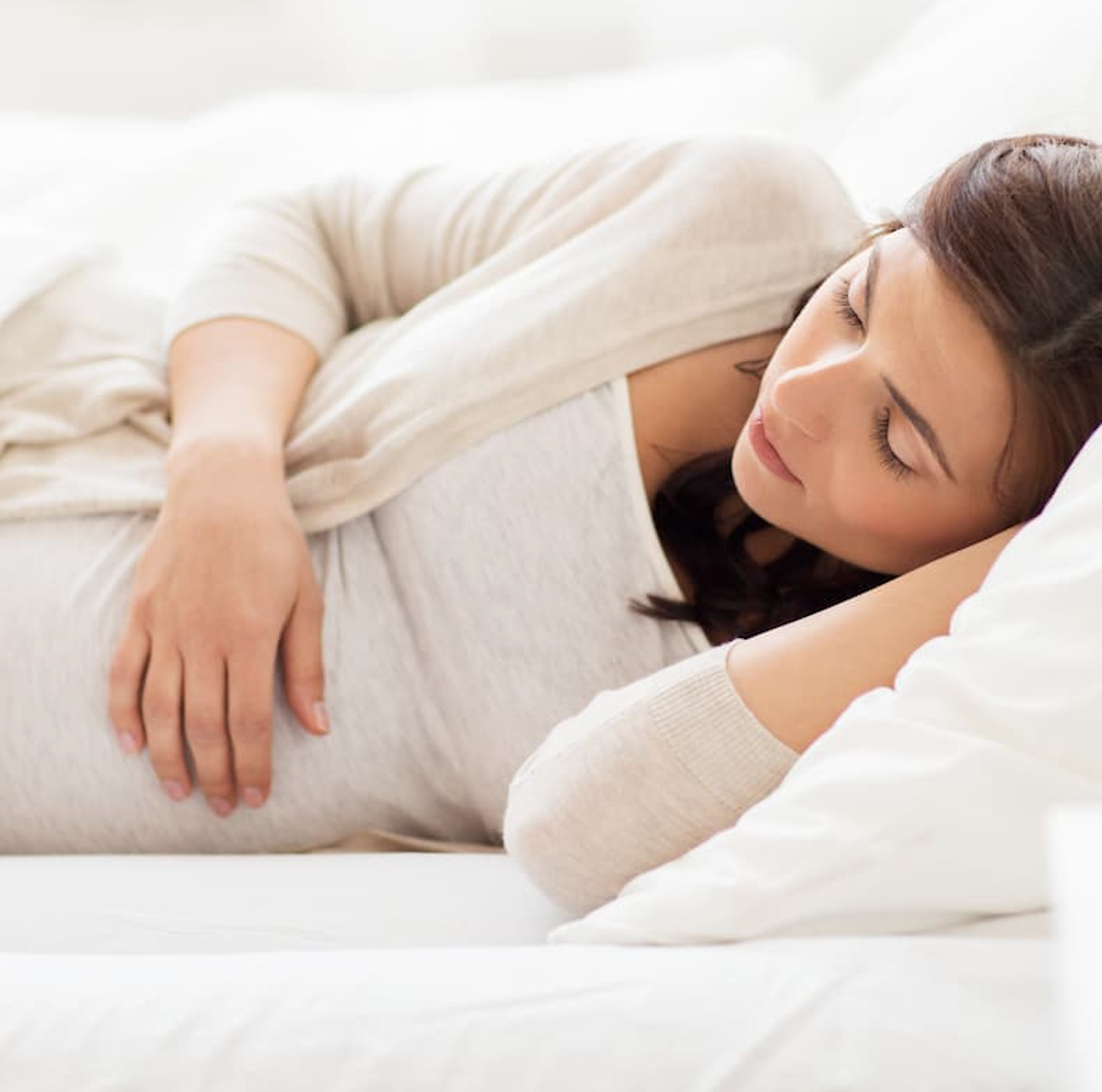Pregnancy Insomnia and Postpartum Depression: Why Screening Matters
Sleep problems in the third trimester are linked to postpartum depression, but addressing antepartum depression is key.
By
Lana Pine
| Published on February 6, 2025
5 min read
Credit: Adobe Stock/Syda Productions

Although clinically significant insomnia symptoms in the second and third trimesters were associated with higher postpartum depression symptoms in a new study, when antepartum depression was factored in, insomnia alone was no longer a predictor of postpartum depression.
Investigators said the findings highlight the importance of screening for both insomnia and depression during pregnancy to help prevent postpartum depression, a condition that affects 14% to 17% of women. Characterized by depressive episodes that occur within the first four weeks postpartum, it can begin during pregnancy and within the first year after childbirth, many professionals believe.
Postpartum depression can lead to side effects including poor bonding and neurodevelopmental issues in the infant, and women with a history of psychiatric disorders are at an even higher risk.
“It is known that good sleep quality is essential for mental health, impacting emotions and cognition,” wrote a team of investigators including Birit Broekman M.D., Ph.D., associated with the Department of Psychiatry and Medical Psychology at Onze Lieve Vrouwe Gasthuis (OLVG) in the Netherlands. “Addressing insomnia can therefore be a vital part of preventing and treating postpartum depression.”
Investigators examined the link between antepartum insomnia and postpartum depression, considering whether preexisting psychiatric vulnerability influences this relationship, using data from 217 women enrolled in the Understanding Peripartum mental health and the role of Sleep and Early Trauma (UPSET) study. These women completed sleep (Insomnia Severity Index 3 [ISI 3]) and depression (Hospital Anxiety and Depression Scale [HADS]) questionnaires during their second and third trimesters and postpartum.
The median age of women was 37 years and most (93%) participants were highly educated. Clinically significant insomnia was reported in 16% of women in the second trimester and 14% of women in the third trimester. These percentages do not align with other research that demonstrated prevalence rates between 39.7% to 42.4% in the third trimester, although investigators hypothesized this may be due in part to the high proportion of participants who were highly educated — a protective factor for insomnia. Additionally, it is possible that patients with more severe problems were treated outside the hospital and therefore did not participate in the UPSET study.
Symptoms of insomnia were linked to higher postpartum depression symptoms, although this connection was statistically significant only for the third trimester.
Interestingly, insomnia did not predict postpartum depression when antepartum depression was factored in. Additionally, psychiatric vulnerability did not moderate the relationship according to stratified regression models.
Investigators said using a relatively large percentage of pregnant women with psychiatric vulnerability strengthened their findings, as previous research focused on insomnia and/or depression as opposed to vulnerability. Additionally, they included the second trimester of pregnancy to glean more insight into insomnia earlier in pregnancy.
However, investigators noted the possibility of selection and cultural bias, despite the large cultural diversity in patients treated at OLVG. The homogenous group of women included may have limited the generalizability of results. Further, the sample size of women in their second trimester was smaller than that of women in their third trimester.
All potential confounders — such as psychosocial stressors — were not accounted for in the study, and investigators encourage future research to include a more diverse group of pregnant women with differing sociodemographic backgrounds with a broader range of confounders.
“Even though the results are modest, it remains important to take antepartum insomnia (and depression) symptoms seriously as early as possible in pregnancy, but at least from the second trimester onwards, to prevent or reduce postpartum depression,” investigators concluded.

